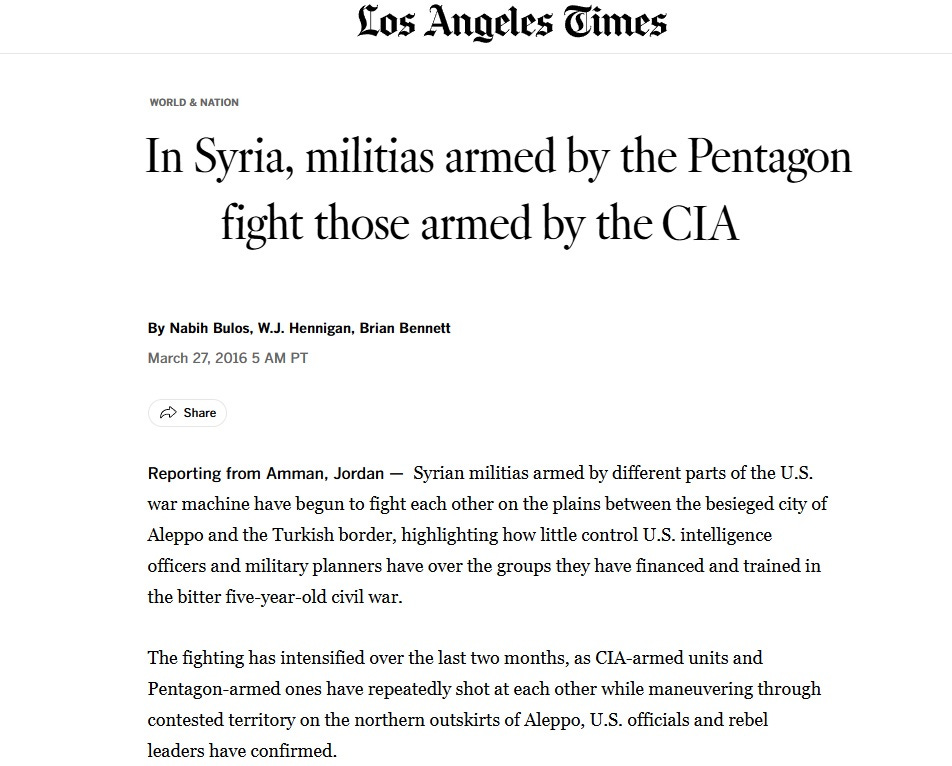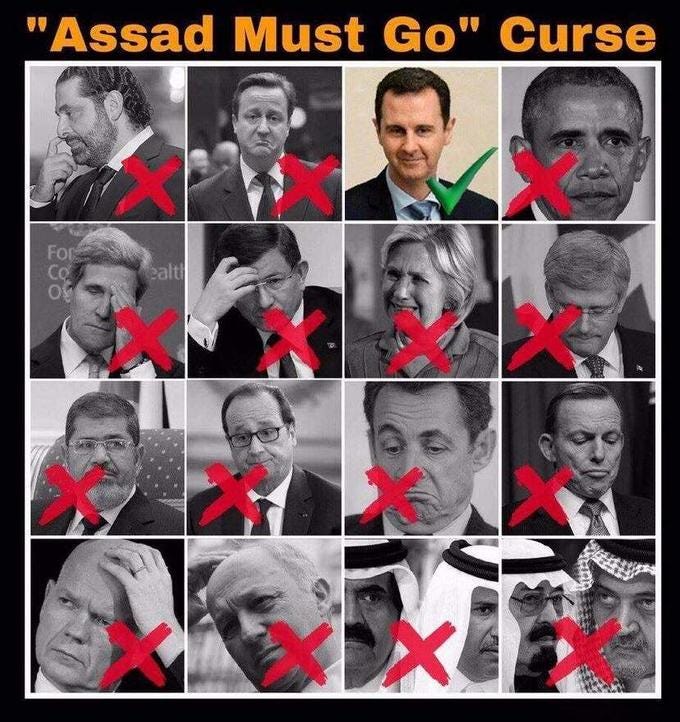
Here is a long post providing lots of background information on Syria. Having watched the latest attempt to topple Assad play out in the media, I thought this would be a helpful corrective to the obvious propaganda presented as our news.
In recent days both Turkey and US/Israel backed proxies have taken military action in Syria.
As Western sources reprise the “moderate rebels” line, here is a post which provides some context on the players in Syria.
The Turkish moves in the North have a long and fraught history, involving the US - whose rebranded “Nusra front” are being cheered on by neocons like William Kristol as “freedom fighters”. As you will see, there is bad blood between the Turks and the US, which continues to this day.
At the time of writing Assad has secured Russian, Iranian and Hezbollah support. So far, he remains in power and appears to have defeated this initial wave.
This action is rumoured to have been planned for the Spring, but events in Ukraine and Georgia appeared to have moved the timetable for a strategic blow against Russian influence.
Such an imbalance is unlikely to be resolved soon. The interregnum activity is likely to continue. For now, here is a brief history of why this is happening and who is involved, which I initially published in January 2023.
In coverage of Syria in early 2023 there was little mention in the media of the actions of Turkey, especially in its late 2022 peace talks with Syria. Here follows my analysis of some of the key events, players and outcomes of the factionalism at play in the near Middle East at that time.
War and Peace Talks - the view from January 2023
Until the sudden rapprochement achieved this week during talks in Moscow, Turkey looked certain to launch another ground offensive against a key US asset in Syria. At the same time, it is developing major energy infrastructure with Russia. What does this mean for US influence, when one NATO member is acting against another? With Iran also conducting strikes in Syria, this is a region whose tensions are putting old allegiances to the test.
It remains to be seen whether the much-mooted Turkish ground invasion of Syria will ever take place. This is not a declaration of war on President Assad’s nation, however. The operation, should it materialise, is simply the latest development in a complex regional power struggle dating back to 2011. It forms part of a Turkish plan first envisioned in 2017 to establish a ‘security zone’ penetrating up to 30km behind the Syrian border with Turkey. Yet this grand plan is threatened by the disapproval of a powerful ally – and that is not the US, but Russia.
Talks between Assad and Erdogan this week leave the Kurds as their agreed common enemy in Syria. This will be the only remaining major hostile faction in the region - hostile, that is, to a Russian and Chinese backed peace deal which has so outraged the neoconservative John Bolton that he has suggested the expulsion of Turkey from NATO should Erdogan win his forthcoming Presidential election.
Turkey has effectively announced an alliance with Syria against the assets of the United States, the Kurds. Turkey’s leader was initially friendly with Assad, and was persuaded to back rebel groups in Syria to unseat him on a promise of US intervention which never materialised. This explains Erdogan’s resentment - of the Obama administration which of course included the current US President, Joe Biden.
Personal animus aside, Erdogan has now moved against US interests in the region, isolating them in support of a landlocked faction with no regional support, and considered enemies of Syria, Turkey and Iran.
Turkey under Erdogan has maximised its influence in a gambit which includes the control of migrant flows, a dominant position in European gas supply through Turkstream, bargaining over its vote to assent to the NATO membership of Sweden and Finland, and has now made a move which reduces US influence in the Middle East to its lowest point since the British Empire.
War games in Syria: Meet the players
Here follows a background analysis of the actions of states and their factions in Syria.
Keep reading with a 7-day free trial
Subscribe to Frank Wright to keep reading this post and get 7 days of free access to the full post archives.






